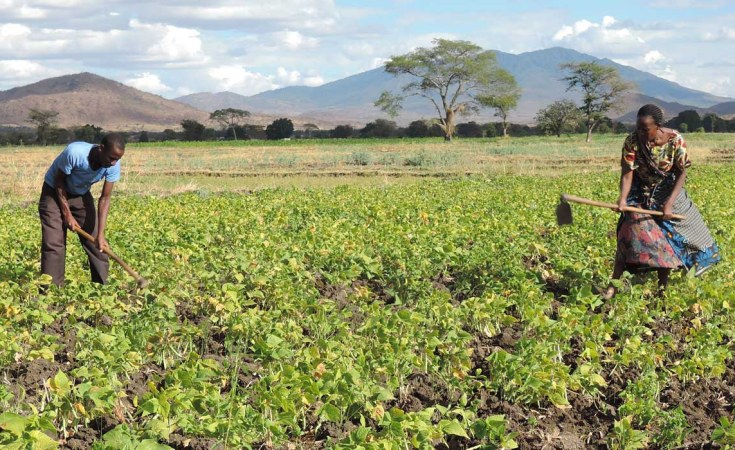Tunis — The inflation diaries: Many rely on state-subsidised pasta to survive as food, fuel, and rent prices hit the poor and middle-class alike
Chambermaid Reem works six days a week at a minimum-wage job cleaning rooms at a luxury boutique hotel in the Old City of Tunis, where rich and poor live side by side amid an economic crisis that shows no sign of ending.
Half of her monthly salary of 400 Tunisian dinars ($125) is gobbled up by rent, while rising prices for basics including food and energy mean she is constantly in arrears with bills.
"Everything is so expensive now," said Reem, who asked to be identified only by her first name.
"I always come up short before the end of the month."
Like most Tunisians, Reem has a line of credit at her local grocery shop, with shopkeepers acting as a buffer for citizens grappling with inflation of 8%.
Countries around the world are seeing prices for food and fuel spike, largely driven by the war in Ukraine. In Tunisia, already deep in economic malaise, the impact has been particularly harsh.
President Kais Saied, who ousted the elected parliament a year ago to rule by decree in a step his foes call a coup, has ordered shopkeepers to keep prices low in the face of rising inflation.
However, hardship has deepened since he took power, with a fifth of the workforce unemployed and poverty higher than before the country's 2011 Arab Spring uprising.
Prices have continued to go up, despite police raiding warehouses to seize flour and pasta from traders who Saied accused of profiteering.
Shopkeepers, too, are suffering the pinch. When asked about Saied's order to hold down prices, market traders rolled their eyes.
"Pffft, the price is the price," said one greengrocer, who declined to be named.
Butcher Mabrouk Sayessi's stall in the central Tunis neighbourhood of Bab Souika used to be crowded with shoppers every morning. Now there is no queue - even though he has switched to selling cheaper cuts.
"Lamb meat has gone up to 32 dinars per kilo from 28 in the past year," he said.
"(Now) we sell old mutton for 15 dinars per kilo. Because our customers are poor, we sell them small pieces at a time for five or six dinars.
DEEPENING POVERTY
It is not just the poor who are suffering; the crisis has been progressively impacting Tunisia's middle classes.
Imen Wannen, 31, works in hotel management. Despite earning a middle-class salary of 1,000 dinars per month she said "I work just to eat".
Average property values have risen 11% since the start of the pandemic in early 2020, according to data from the Tunisian Institute of National Statistics, forcing young people to crowd into small apartments such as Wannen's home in central Tunis.
"I live with five other girls in a two-bedroom apartment, which costs 900 dinars a month plus bills. Two of the girls don't work full time so we help them out," said Wannen, who is also supporting her younger brother through a master's degree.
The girls take it in turns to cook each night - almost invariably a big plate of state-subsidised "macarona" pasta.
"Even the middle class eat very little meat now - maybe once a week because it is too expensive - but I became vegetarian," said Wannen.
Meanwhile, Reem said her main concern is ensuring she can afford her children's school equipment and clothing.
"Clothes used to be really cheap at the 'fripe', but not any more," she said, in reference to Tunisia's bulk second-hand clothes markets.
Quality items often get snapped up and resold at marked-up prices in "fripe de luxe" shops, she said, while other basics from textbooks to biros are also getting more expensive.
But she said her scrimping has been worth it, as her children are doing well.
"I tell them to study hard so they can have a better life than me," she said.
($1 = 3.1999 Tunisian dinars)
(Reporting by Elizia Volkmann; Editing by Sonia Elks. The Thomson Reuters Foundation is the charitable arm of Thomson Reuters, and covers the lives of people around the world who struggle to live freely or fairly. Visit http://news.trust.org)


